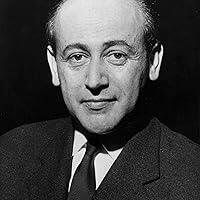
Paul Celan
关于作者
Paul Celan was a renowned Romanian-born poet, often considered one of the most significant German-language poets of the post-World War II era. His work is characterized by its profound engagement with themes of trauma, loss, and the search for meaning in the aftermath of the Holocaust. Celan's poetry is noted for its innovative use of language, frequently employing dense imagery and complex structure to evoke the emotional weight of his experiences. His most famous poem, "Death Fugue," starkly addresses the horrors of the Holocaust and reflects his own struggles with identity and memory.
After fleeing to France during World War II, Celan became part of the Paris literary scene, where he interacted with various influential writers and artists. His poetry often grapples with the challenges of language itself, reflecting his belief in the power of words to convey both beauty and despair. Celan's legacy endures through his profound explorations of language and existence, influencing countless poets and thinkers in the years since his passing.